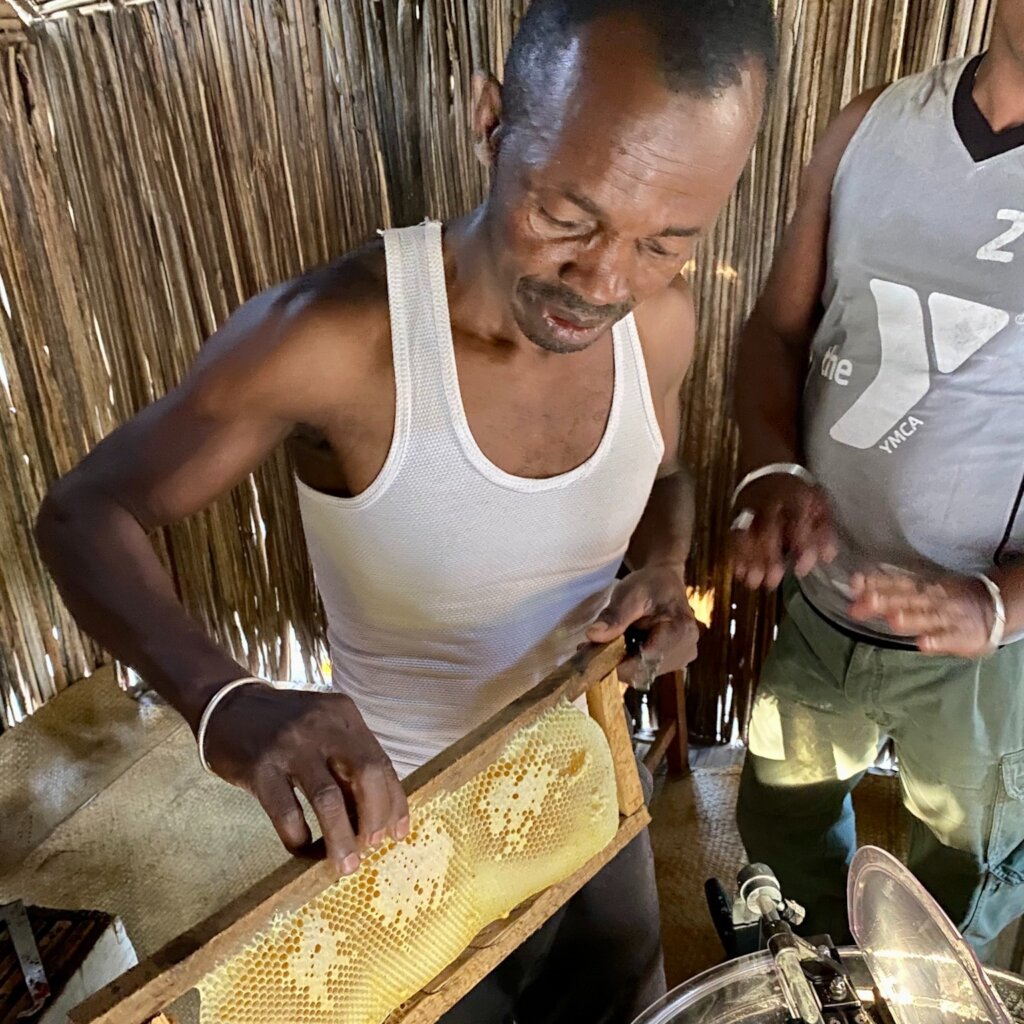By Alex Cook | Programmes and Office Assistant
Since 2016, Project Renitantely (Malagasy for honeybee) has supported beekeepers in the remote Anosy region to improve beekeeping as a viable and sustainable livelihood. Since the project’s inception, SEED has helped develop efficient beekeeping practices for over 80 individuals across six rural communities in the Anosy region. These efforts have resulted in increased honey yields, which both provides long term sustainable income and a reliable source of food, while also protecting the region’s rich biodiversity.
In 2023 alone, beekeepers expanded their apiaries with the construction of 48 new modern hives. Moreover, SEED facilitated the expansion of beekeeping as a livelihood by helping 16 new beekeeping businesses attain hive codes from the Regional ministry. Finally, SEED distributed 465 fruit tree seedlings and 155 vegetable seed packages to supplement the bees’ foraging, an act that also generated an estimated additional 522,400 MGA ($115 USD/£90 GBP) from subsequent fruit and vegetable harvests.
Beekeepers further benefited from the donation of honey extractors, which spin a whole hive frame to separate the honey from its comb. Using this tool allows bees to quickly continue honey production without needing to rebuild the comb, and allows beekeepers to quickly process more honeycombs. Consequently, both the bees and their keepers can produce more honey, increasing the beekeeper’s output and income.
In 2024, SEED will continue working with local experts to facilitate a sustainable, community-centered approach to beekeeping. By conducting monthly monitoring visits to each beekeeper, the experts will ensure that beekeepers are maintaining healthy hives, expanding their apiaries, and planting fruit and vegetable seeds to create a healthy environment and forage for the bees. These actions collectively increase honeybee health, thereby facilitating crop production, which ultimately provides nutritious food and income to countless familes in a sustainable way. We are grateful for the generosity of the many donors who have helped promote a sustainable and healthy livelihood for the bees, beekeepers, and their families and communities.
By Betty Gisore | Programmes and Office Assistant, SEED Madagascar
By Lauren Carrick | Programmes and Office Assistant
Project reports on GlobalGiving are posted directly to globalgiving.org by Project Leaders as they are completed, generally every 3-4 months. To protect the integrity of these documents, GlobalGiving does not alter them; therefore you may find some language or formatting issues.
If you donate to this project or have donated to this project, you can recieve an email when this project posts a report. You can also subscribe for reports without donating.
Support this important cause by creating a personalized fundraising page.
Start a Fundraiser